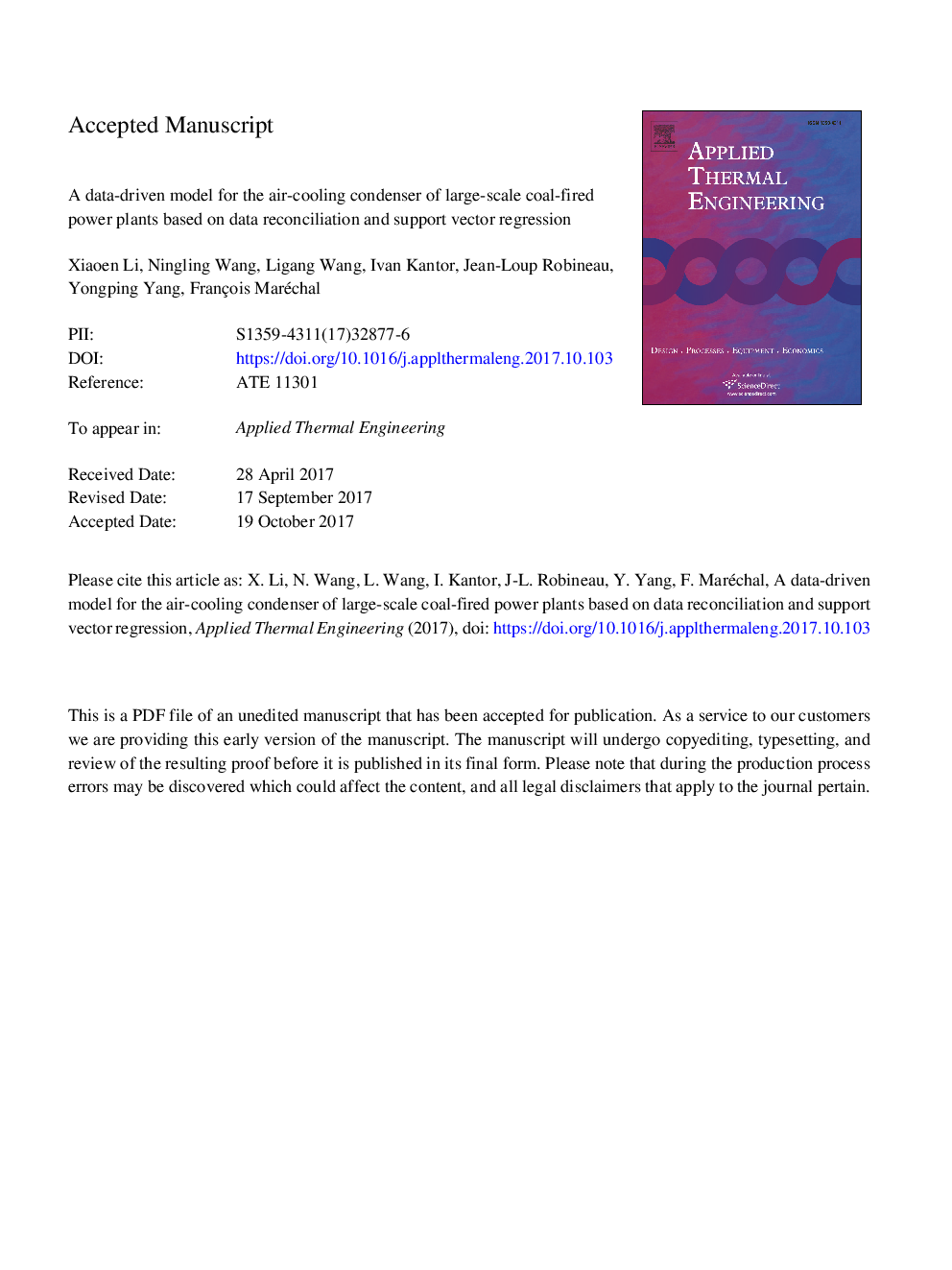ترجمه فارسی عنوان مقاله
مدل داده محور برای خنک کننده هوا خنک کننده نیروگاه های حرارتی بر اساس مصالحه داده ها و رگرسیون بردار پشتیبانی
عنوان انگلیسی
A data-driven model for the air-cooling condenser of thermal power plants based on data reconciliation and support vector regression
| کد مقاله | سال انتشار | تعداد صفحات مقاله انگلیسی |
|---|---|---|
| 110396 | 2018 | 42 صفحه PDF |
منبع

Publisher : Elsevier - Science Direct (الزویر - ساینس دایرکت)
Journal : Applied Thermal Engineering, Volume 129, 25 January 2018, Pages 1496-1507
ترجمه کلمات کلیدی
خنک کننده هوا خنک کننده، مدل هدایت داده مصالحه داده، رگرسیون بردار پشتیبانی، نیروگاههای حرارتی،
کلمات کلیدی انگلیسی
Air-cooling condenser; Data-driven model; Data reconciliation; Support vector regression; Thermal power plants;

